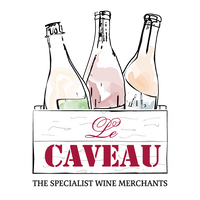Red berried, fresh and lively, this red will be equally perfect with Turkey leftovers as with weeknight fare such as pasta, pizza and tacos. If you’ve never tasted a modern Austrian red then this is the perfect starting point, you couldn’t get an easier to drink red than Beck INK.
Ink is a fresh, juicy, vibrant and delicious blend of 80% Zweigelt and 20% St. Laurent. Judith chooses the most forward and expressive batches from the Zweigelt and St. Laurent harvest for the INK. Beck picks all of the fruit by hand and sorts the grapes in the vineyard and at the winery. Fermented with wild yeasts, and very little or no sulphites ever added.
WEINGUT JUDITH BECK, GOLS, Burgenland
Biodynamic, Natural
Judith Beck’s winery is run as a family business. Since 1976 the area under vine increased from 5 to 15 ha. Most of the vineyards are situated at the Wagram of the Parndorfer Plate, the most important site of the region. Judith took over in 2004 and from 2007 Judith has produced wines in accordance with biodynamic principles. The winery is housed in an impressive airy new building in the middle of the vineyards from Gols. Now the emphasis is on refining the style whilst capturing the potential of the grapes. Judith is passionate about the traditional red wine varieties: Blaufränkisch and St. Laurent. Judith is an impressively calm, thoughtful person and that sense of relaxation seems to transmit itself into her wines, which possess a lightness of touch not always apparent in this region.
As mentioned, the focus is on the vine growing. Biodynamics is an art of healing which takes advantage of the holistic curativeness of nature. It aims at strengthening the natural resistance of the plant. Pest and disease control are mainly affected in a prophylactic manner. “We encourage the formation of humus, as a basis of healthy soils, by regularly applying cattle manure which we prepare ourselves and by cultivating grass between the rows. Herbal teas (such as stinging nettle, chamomile, field horsetail ...) and biodynamic field sprays such as horn manure and horn silica are used under the consideration of moon rhythms; their purpose being to strengthen resistance and further the physiological ripeness of grapes.”




